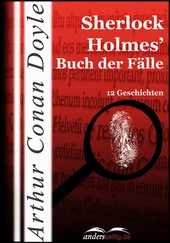Arthur Warren - London Days - A Book of Reminiscences
Здесь есть возможность читать онлайн «Arthur Warren - London Days - A Book of Reminiscences» — ознакомительный отрывок электронной книги совершенно бесплатно, а после прочтения отрывка купить полную версию. В некоторых случаях можно слушать аудио, скачать через торрент в формате fb2 и присутствует краткое содержание. Жанр: Биографии и Мемуары, История, foreign_antique, foreign_prose, на английском языке. Описание произведения, (предисловие) а так же отзывы посетителей доступны на портале библиотеки ЛибКат.
- Название:London Days: A Book of Reminiscences
- Автор:
- Жанр:
- Год:неизвестен
- ISBN:нет данных
- Рейтинг книги:5 / 5. Голосов: 1
-
Избранное:Добавить в избранное
- Отзывы:
-
Ваша оценка:
- 100
- 1
- 2
- 3
- 4
- 5
London Days: A Book of Reminiscences: краткое содержание, описание и аннотация
Предлагаем к чтению аннотацию, описание, краткое содержание или предисловие (зависит от того, что написал сам автор книги «London Days: A Book of Reminiscences»). Если вы не нашли необходимую информацию о книге — напишите в комментариях, мы постараемся отыскать её.
London Days: A Book of Reminiscences — читать онлайн ознакомительный отрывок
Ниже представлен текст книги, разбитый по страницам. Система сохранения места последней прочитанной страницы, позволяет с удобством читать онлайн бесплатно книгу «London Days: A Book of Reminiscences», без необходимости каждый раз заново искать на чём Вы остановились. Поставьте закладку, и сможете в любой момент перейти на страницу, на которой закончили чтение.
Интервал:
Закладка:
How I praised the duck at that first dinner, and extolled Madame's skill in cookery! Madame was pleased. Have I conveyed the impression that these were wealthy folk? It was not my intention to do so. They were Normandy peasants, which may mean anything or little as far as well-being goes. The room in which we ate was the living room, cooking-washing-eating-room. I daresay that behind a panel, or a curtain, there was an alcove with a bed. Anyhow, there was one in an adjoining room. And over the dining table was a loft to which you mounted by a ladder which was slung against the ceiling, when not wanted, by rope and pulley. The dining-room floor was of earth, hard packed, hard as nails, clean as the proverbial whistle. Everything shone with cleanliness—windows, napery, brass, pewter, plates, kettles—if all the belongings of the room had whistled there would have been a bellow as if the siren of a big liner had blown. Such cleanliness and such cooking I have not found in all the years that followed in the many English cottages I have known, but I met the combination three or four times a day for six or seven days, each time beneath a different roof.
St. Ange and I walked back across the fields by moonlight, Monsieur, Madame, and Toddlekins Station Master, and two from our feasting house, accompanying us. That night I slept like a top. At noon what was my surprise and joy to find another duck, duly prepared and cooked by our hostess of the preceding day, waiting for me on the station master's table. It had been brought by one of her small fry with the lady's compliments. There was a compliment fit for a prince! Have I mentioned the wine that graced the basket, and the miraculous green peas that were to melt in the mouth? Ah, well, it was long ago, and it was hospitality.
In that way did Normandy receive us at every halt, whether we called at farm, or cottage, or château. Was there ever such a country for eating and drinking, I wondered. At last we arrived at Rouen. We had driven in from the country, and somewhat wearied and dusty with the journey, we were hurried by a stout and jolly man, a gigantic person who was in waiting on the road, to a delightful dwelling in the town where three generations of St. Ange's relatives welcomed us and would have haled us forthwith to the seats of honour, but that we pleaded for a wash and a change.
It was twelve o'clock when we gathered at table. It was four when we rose. And when we rose, something else was served in the next room. And I was told that we must dine at another house, at seven; I think seven was the hour. And we were to sup at a third party at eleven! But I had become accustomed to this splendour of generosity. St. Ange had warned me at Amiens that it was inevitable, and could n't be shirked. And so, after the first heroic occasion, the memorable affair of duck at the cottage, I made a great show of eating and drinking, so that these valiant Norman trenchermen would not think me rude and neglectful, and speedily I learned how to keep up the appearance of feasting and of still having a wee-bit appetite at the end. That was doing pretty well, I think, for a novice. And it required some skill in calculation, for at each table there was everything, and abundance of everything, that gourmets or gourmands could desire to eat and drink. In seven days there were twenty-one such feasts!
When we reached London, on our homeward journey, I called for sausage and mashed, and a tankard of bitter, by way of return to the simple life.
But the kindness of it all, the generous hospitality; the opening of hearts to a stranger who comes with an old friend or relative,—in forty years I have seen nothing to equal it. The gentleman who killed the fatted calf offered but a Barmecide feast in comparison with the provender of my Norman friends.
A few days after the return from France a telegram came to me from St. Ange, saying that his boy was seriously ill, and asking me to come at once. In the evening I went as quickly as I could to Shepherd's Bush. The little chap had taken a chill, pneumonia had supervened. The doctor was in the house when I arrived. "Can't live through the night," he said. The parents were with the little fellow. I dozed below in an armchair, knowing that there was need of sleep if I were to see these good people through the crest of their trouble. An hour after midnight the mother came and said: "It is finished! Yes, dead. I am anxious for mon mari . He will not move, or speak. He sits staring— comme ça . Please go to him."
I aroused St. Ange and made him come with me. All night till dawn I walked him, through Shepherd's Bush, through Hammersmith, across the Bridge, across Barnes Common, through Mortlake and Richmond, and back again, making him talk and tiring him out. That was the object, to counter his nervous excitement by physical fatigue and to divert his mind. I brought him home at sunrise, limp, exhausted. He slept for ten hours.
I had to make him see that the world had not come to a standstill, that there was no "copy" for his paper, and so on. I saw his printers, his publishers, and some other people he knew who turned out "copy." Between them all they saw him through the worst of his problems. This brought me in a practical way into connection with the outer fringes of Fleet Street and London journalism, and in my odd hours I learned how "copy" was prepared for the compositors, how proofs were corrected, how "forms" were made up, and before long was able to assist some of my new acquaintances when they were pressed for time at these games.
It was natural enough that in following these lines as a joyous amateur I should drift into journalism. I never intended to stay in it, I preferred to write books; but in those days that seemed a mad thing to do,—to write books and expect to earn money by them. In journalism, if one got his "stuff" printed, he got paid, and, if one knew the ropes, he had n't to wait forever for the payment. There was a certain attractiveness about being paid for work one liked to do, and I liked writing better than anything else. And I liked the rush and pressure of journalism as I saw these things manifested in the experience of my friends. They had adventures too; I also would have them. It seemed possible to know everybody, go everywhere, see everything, and, if one worked the ropes with skill, he might remain his own master. One saw it all through rose-coloured glasses. How else should youth see anything?
Even to-day I see St. Ange through the rose-coloured glasses of memory. It is the only way possible, for except in memory I have not seen him in all these years since we returned from Normandy and his boy died. Within a month from the funeral Raoul St. Ange and his wife vanished. They had returned to France, 't was said, but no one knew. His pupils did not know, his printers did not know, his paper was dying. I suppose he had n't the heart to face the obsequies. He merely vanished. No inquiry revealed him. Never a letter, never a wire, never a trace of any kind in forty years.
CHAPTER IV
I TAKE THE PLUNGE
I have never been so old as I was during my first three or four years in London. It is, or at any rate it used to be, a common delusion of youth that the mantle of years has descended upon its shoulders. In my case the shoulders could have carried a large mantle. I was tall and big framed, earning my living in a foreign country, where, by the way, I felt completely at home; my habits of thought were far beyond those which custom fixes for the 'teens, and all my associates were older than myself, most of them much older. In the work which circumstances and I laid out, youth was by others supposed to be a disadvantage, so that it might have been natural had I assumed the merit of a maturity which I did not possess. But I was not compelled to assume it. It was attributed to me. Nobody supposed that I was under nineteen. I was supposed to be at least half a dozen years older.
Читать дальшеИнтервал:
Закладка:
Похожие книги на «London Days: A Book of Reminiscences»
Представляем Вашему вниманию похожие книги на «London Days: A Book of Reminiscences» списком для выбора. Мы отобрали схожую по названию и смыслу литературу в надежде предоставить читателям больше вариантов отыскать новые, интересные, ещё непрочитанные произведения.
Обсуждение, отзывы о книге «London Days: A Book of Reminiscences» и просто собственные мнения читателей. Оставьте ваши комментарии, напишите, что Вы думаете о произведении, его смысле или главных героях. Укажите что конкретно понравилось, а что нет, и почему Вы так считаете.












